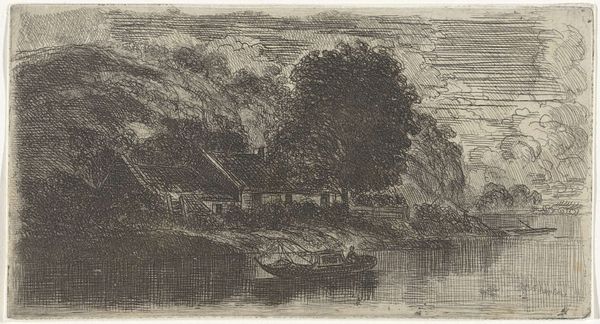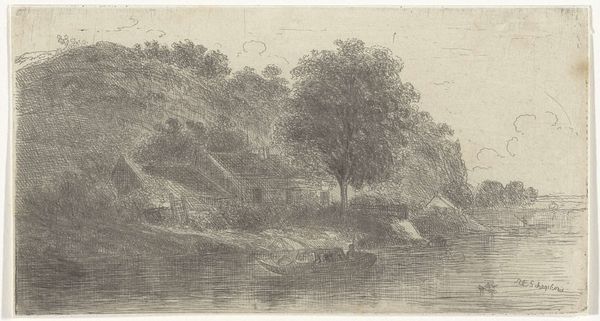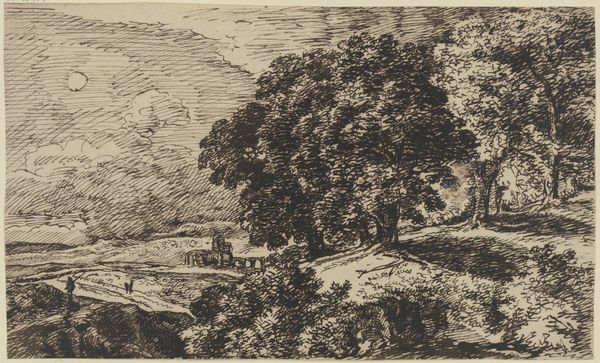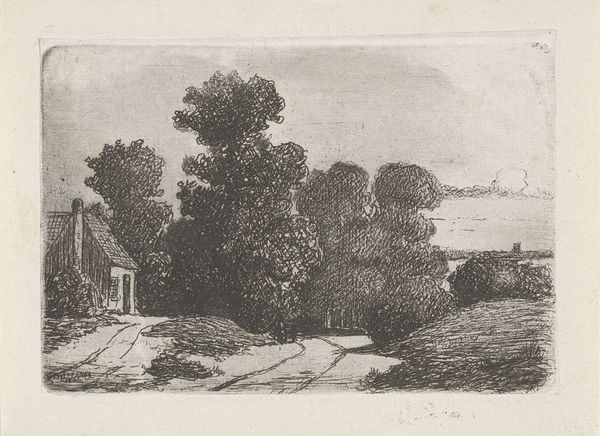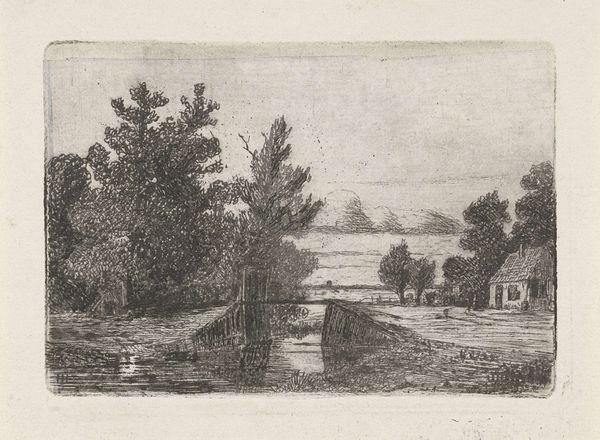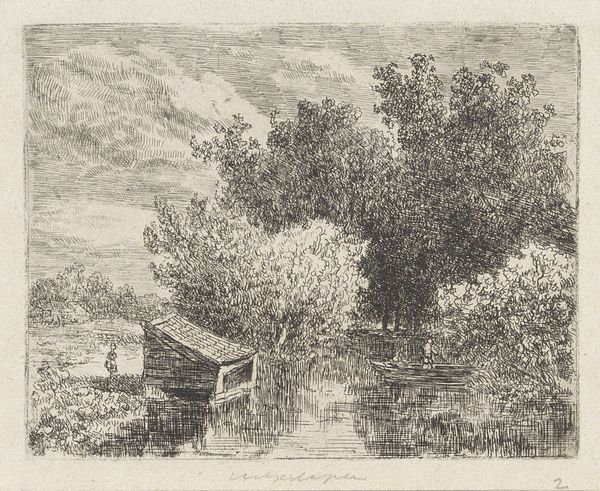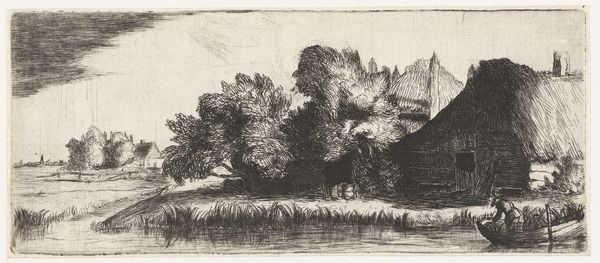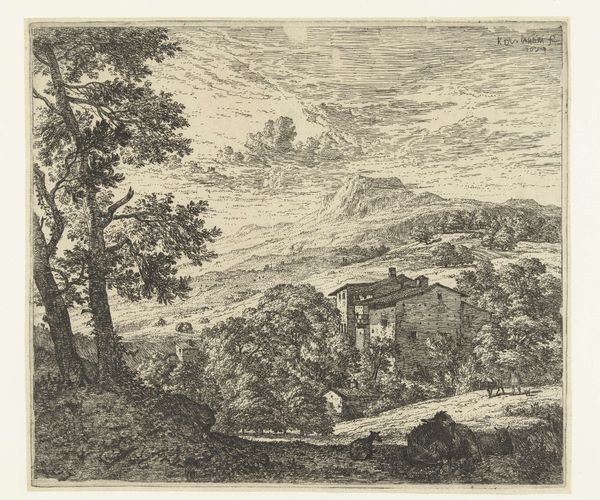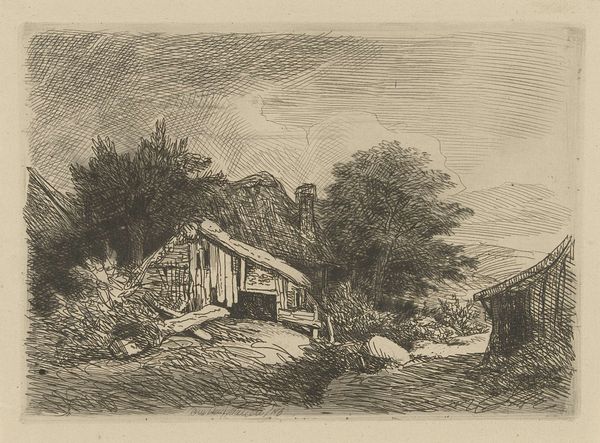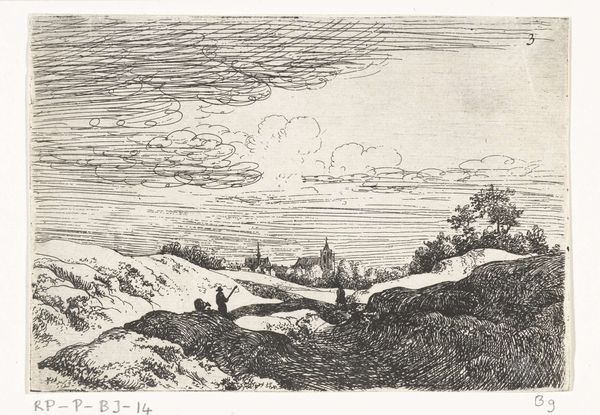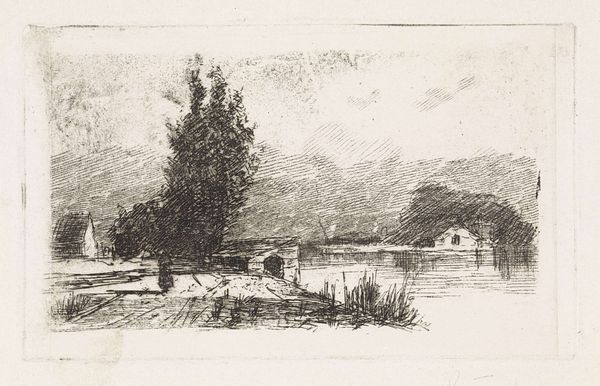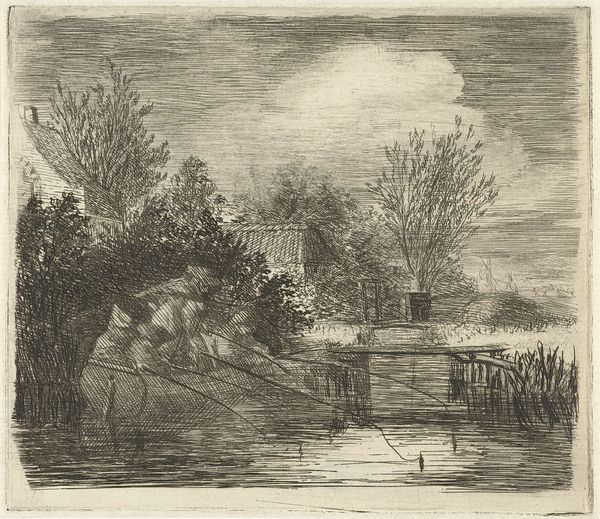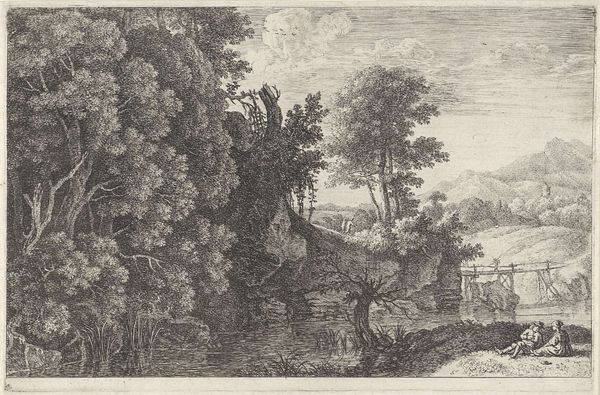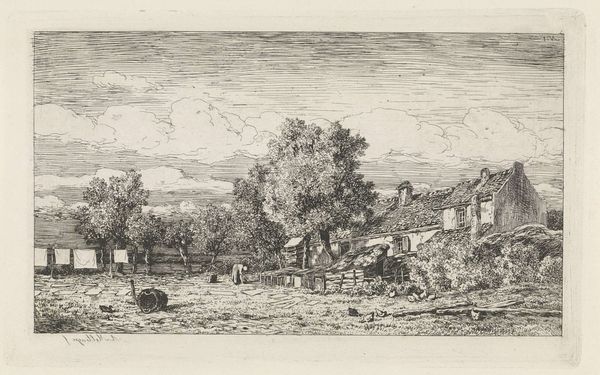
Gezicht op de linkeroever van de Maas met café De Rode Haan 1830 - 1899
0:00
0:00
alexanderschaepkens
Rijksmuseum
#
pencil drawn
#
amateur sketch
#
natural shape and form
#
light pencil work
#
pencil sketch
#
incomplete sketchy
#
pencil drawing
#
pen-ink sketch
#
pencil work
#
watercolor
Dimensions: height 89 mm, width 166 mm
Copyright: Rijks Museum: Open Domain
Editor: This is "Gezicht op de linkeroever van de Maas met café De Rode Haan," or "View of the left bank of the Meuse with café De Rode Haan," by Alexander Schaepkens, made sometime between 1830 and 1899. It looks like pencil and maybe some watercolor. The mood feels… nostalgic, almost dreamlike. How do you interpret this work? Curator: I see this drawing as a powerful snapshot of the 19th-century landscape, imbued with social commentary. Look closely – what kind of activities are occurring in the foreground and background? The café, situated by the river, would have been a central location in the community, perhaps for socialising across different classes and identities. What power dynamics are subtly present in such a seemingly pastoral scene? Editor: That's interesting! I was just thinking of it as a pretty landscape, but you're right. There is that small boat and it looks like somebody is alone. The building looks a bit like a place of leisure. Curator: Precisely. The act of depicting the landscape is never neutral. Schaepkens’ choice to show this particular scene and the people within it invites us to consider themes of labor, leisure, and the impact of urbanization on the Dutch countryside. Does this new framework change your initial perception of the mood of this drawing? Editor: Definitely. It adds a layer of complexity, moving it beyond simple nostalgia. I now see it as a potential reflection on social structures and individual experiences within a specific historical moment. Curator: Exactly! This work allows us to connect the visible realities of the landscape with the underlying societal currents. Editor: I had never considered landscape art this way before. Thank you for sharing your insights! Curator: It's been my pleasure! The intersections of art and societal understanding are where real learning happens.
Comments
No comments
Be the first to comment and join the conversation on the ultimate creative platform.
